
Water treatment is a critical process that ensures access to safe and clean water for daily use. With growing concerns around water quality and scarcity, water treatment services have become essential to maintaining public health and well-being. However, several myths and misconceptions surrounding water treatment can prevent people from utilizing its benefits effectively. As a leading provider of water treatment services in Maryland, our experts at Peninsula Water Conditioning aim to debunk these myths and provide accurate information to help people make informed decisions about their water quality. Today, we will discuss common myths about water treatment and provide detailed insights to separate fact from fiction. By the end, you will better understand the role of water conditioning companies in maintaining high-quality water standards and the importance of proper water treatment methods. So let’s dive in and debunk some water treatment myths!
Myth #1: Boiling water is the best way to purify it
Boiling water is a common method people use to purify their water, but it is not always effective for all types of contaminants. While boiling water can kill some bacteria and viruses, it may not be enough to eliminate all harmful substances.
How Does Boiling Water Work As A Purification Method?
Boiling water is a simple and cost-effective way to remove some types of contaminants from water. It involves heating the water to a temperature of 212°F (100°C) to kill most bacteria, viruses, and parasites that may be present.
Limitations of boiling water
Boiling water has several drawbacks that may limit its effectiveness as a water treatment method.
Taste And Odour Changes
Boiling water can change the taste and odour of the water due to the evaporation of some volatile compounds. This can make the water less palatable, which may discourage people from drinking enough water.
Energy Usage
Boiling water requires energy to heat the water, which can be a significant cost for households that regularly boil large amounts of water. Additionally, using non-renewable energy sources can contribute to environmental pollution and climate change.
Possible Recontamination
Boiling water may not eliminate all types of contaminants, such as heavy metals and chemicals that have a higher boiling point than water. Additionally, if the boiled water is stored in a contaminated container, it may become recontaminated.
Myth #2: Bottled water is always safer than tap water
Bottled water is often marketed as a healthier and safer alternative to tap water. However, this is not always the case. In fact, regulations for bottled water are not as strict as those for tap water in the US. This section will debunk the myth that bottled water is always safer than tap water and explain how water treatment services play a crucial role in ensuring safe and high-quality tap water.
Regulations for Bottled Water
The regulations for bottled water are not as strict as those for tap water in the US. The Environmental Protection Agency (EPA) regulates tap water, while the Food and Drug Administration (FDA) regulates bottled water. The FDA’s regulations for bottled water are less comprehensive than the EPA’s regulations for tap water. For example, the FDA does not require bottled water to be tested for Cryptosporidium, a parasite that can cause gastrointestinal illness.
Contaminants in Bottled Water
Bottled water may contain harmful chemicals, microplastics, and other contaminants. A study by Orb Media found that 93% of bottled water tested contained microplastics. Some plastic bottles may also leach chemicals into the water such as bisphenol A (BPA). Additionally, some bottled water may come from the same sources as tap water and may not be subjected to any additional treatment.
Myth #3: Water Treatment Removes All Minerals From Water
Water treatment services are essential to ensure drinking water is safe and free of harmful contaminants. However, there is a common misconception that water treatment services and water conditioning companies remove all minerals from water, which can affect its taste and nutritional value.
The Benefits Of Minerals In Drinking Water
While some minerals, such as lead and arsenic, can be harmful to health, other minerals, like calcium and magnesium, can be beneficial. These minerals are essential for healthy bones, teeth, and muscles. They can also improve the taste and quality of water.
Water Treatment Processes And Mineral Removal
Some water treatment processes, such as reverse osmosis, can remove minerals along with contaminants. Reverse osmosis uses a semipermeable membrane to filter out impurities, including minerals. While this can be beneficial in some cases, it may not always be necessary.
Balancing Mineral Removal And Water Quality
Water treatment services and companies can customize their treatment processes to balance mineral removal and water quality. For example, water conditioning companies can use ion exchange technology to remove specific minerals without affecting the overall mineral content of the water.
Myth #4: Chlorine In Tap Water Is Harmful To Health
Chlorine is a commonly used disinfectant in water treatment, and there is a myth that its presence in tap water can be harmful to health. This section will discuss the truth behind this myth and explain why chlorine in tap water is safe for consumption.
Chlorine As A Disinfectant
Chlorine is an effective disinfectant used to kill harmful bacteria and viruses in water treatment plants. When added to water, chlorine reacts with organic matter and forms compounds that can effectively destroy bacteria and viruses. The process of adding chlorine to water is called chlorination, and it is widely used in water treatment plants around the world.
Regulation of Chlorine Levels
While chlorine is necessary for water treatment, too much of it can be harmful. The levels of chlorine in tap water are regulated by the Environmental Protection Agency (EPA) and the Safe Drinking Water Act (SDWA). According to the SDWA, the maximum chlorine level in drinking water is 4 milligrams per litre (mg/L).
Is Chlorine Safe for Consumption?
The short answer is yes. Chlorine is safe for consumption in the amounts found in tap water. According to the World Health Organization, the benefits of chlorination outweigh the risks associated with its use. Chlorine has been used in water treatment for over 100 years and effectively kills harmful bacteria and viruses. Additionally, the chlorine levels in tap water are well below the amount that could cause harm to human health.
Myth #5: Water Filters Can Remove All Contaminants
Water filters are a popular choice for homeowners who want to improve the taste and quality of their tap water. However, there is a common misconception that water filters can remove all contaminants. In reality, different types of filters have different capabilities when it comes to eliminating various contaminants.
Types of Water Filters
Several types of water filters are available on the market, each with its strengths and weaknesses. Here are some of the most common types:
Carbon Filters
These filters use activated carbon to remove chlorine, sediment, and some organic compounds that affect taste and odour. They are not effective against minerals, salts, or microorganisms.
Reverse Osmosis Filters
These filters use a semi-permeable membrane to remove dissolved solids, minerals, and some microorganisms. They are effective against most contaminants but may not remove volatile organic compounds (VOCs) or chlorine.
Ultraviolet Filters
These filters use UV light to kill bacteria and viruses. They are not effective against sediment, minerals, or chemicals.
Ion Exchange Filters
These filters use resin beads to remove minerals, such as calcium and magnesium, and replace them with sodium. They are not effective against sediment or microorganisms.
Limitations of Water Filters
While water filters can improve tap water’s quality and taste, they have limitations. Here are some things to keep in mind:
Filter Lifespan
All filters have a limited lifespan and need to be replaced regularly. Failure to do so can result in decreased performance and the growth of bacteria and other microorganisms.
Contaminant Specificity
Different filters are designed to remove specific contaminants. Choosing a filter that targets the specific contaminants in your water is important.
Maintenance Requirements
Some filters require regular maintenance, such as cleaning or backwashing, to maintain effectiveness.
Cost
Some filters can be expensive to purchase and maintain, depending on their type and frequency of replacement.
Water filters can be a great way to improve the quality and taste of tap water. However, it is important to understand their limitations and choose the right filter for your needs. Remember that no filter can remove all contaminants, and regular maintenance and replacement are essential for optimal performance.
Where To Find The Best Water Treatment In Maryland?
Are you searching for the best water treatment company in Maryland? Look no further, as Peninsula Water Conditioning Inc. is one of the most trusted, locally-owned, and authorized companies providing products for water treatment in Maryland. We are committed to offering the best possible solutions for different water problems.
You can contact us by calling (410) 341-6500. We would be happy to assist you in finding the best water treatment system for your home!
Also Read: Debunking 10 Common Myths About Water Filtration Systems
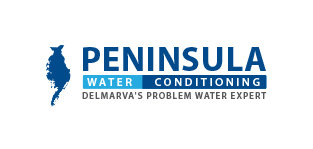

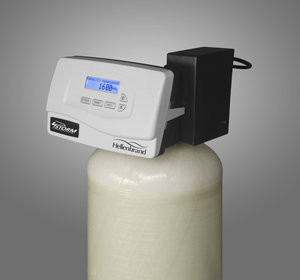
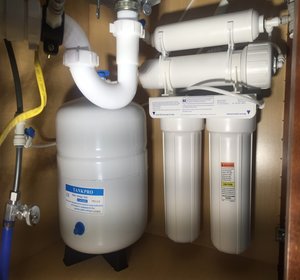
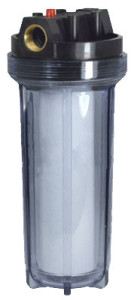
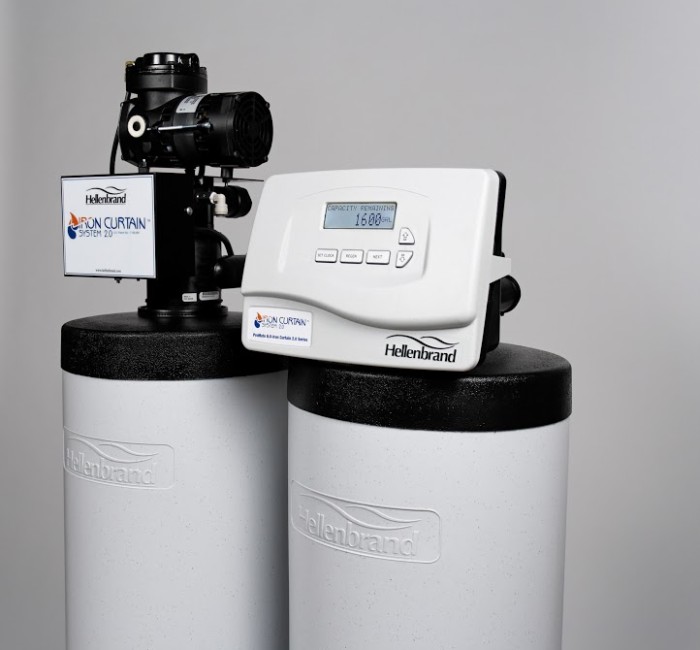
No Comments